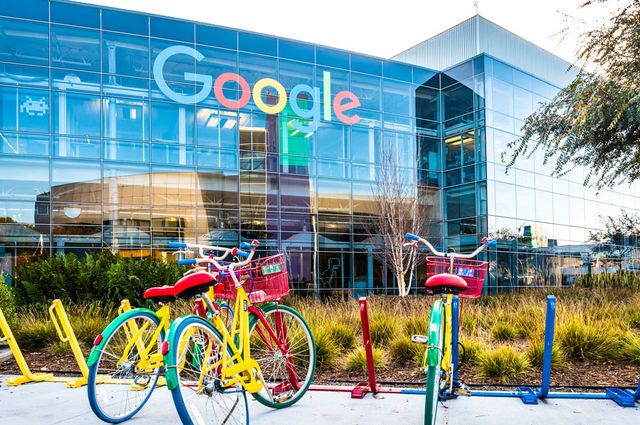Google is phasing out third-party cookies... Will it impact hotel marketing?
10 experts shared their view
Google recently announced that they are going forward with their plan to block third-party cookie tracking through Google Chrome (Chrome commands 63% of browser market share). What this means exactly for hotels is not totally clear. Mostly what will be affecting is tracking the source of revenue on a hotel's website (also called attribution) and the possibility to re-target visitors to your website (unless you use Google's retargeting ad products). To avoid users getting hit with totally irrelevant ads, like billboards on the highway, Google is creating a new system to target users which involves less tracking. Called FLoC the system essentially groups people into categories based on their behavior and puts a label on top so they can get served ads based on those labels without having any personal information connected. However, it only works if you advertise with Google, which means they are building a taller wall around their garden - an odd choice as they enter a long anti-trust investigation process. But what does this mean for hotel marketing? How will hotels track revenue? Since most non-major brand hotels have two domains (website + booking engine) how will this affect tracking?
This decision will most definitely impact hotels' digital marketing strategies, especially those which do not currently include the Google Ads Suite. One notable consequence is that tracking social media campaigns (among others with the Facebook pixel) will become very difficult and might incentivize hotels to move away from this kind of marketing.
In the long run, this change could give Google close to a monopoly on targeted online advertisement which might, in turn, lead them to expand their digital marketing tools. In any case, this announcement, coupled with the most recent development regarding Google Travel, surely foretells the ever-growing importance Google will be taking in the online hospitality industry in the near future.
Although noble in sentiment, the death of cookies will do little to enhance consumer privacy and will only make life far more difficult for smaller hotel brands and independent properties.
Megabrands (including many of the major hotel chains) have already moved on and are actively using alternative technologies to individually target high potential and high value customers. However, smaller players, lacking the expertise, budgets and technology to even get on the playing field, will fall further behind. Costs will rise, and targeting accuracy will decrease, for everyone, all in the name of faux-privacy that everyone knows is a fallacy anyway.
Undoubtedly the winners will be Google and Facebook, who will charge an ever increasing-premium to anyone wishing to even try to gain visibility with potential customers. Meanwhile the rest of us will have to suffer less efficient searches and badly targeted advertising, all in the name of 'progress'.
Not all change is good, for marketers or for consumers.
Let's talk about what Google phasing out third-party cookies isn't. It's not the death of marketing. It's not the death of advertising. Most importantly, it's not the death of your hotel. Apple's Safari, often the most common mobile browser used by guests, has been blocking third-party cookies for a while. Hotel marketers and agencies updated tracking codes on websites and booking engines, then moved on. Yes, Google's Chrome is the most common web browser; this is a bit of a bother. But it's not tragic.
What's more of a concern are the various proposals for how advertising platforms (Google and Facebook most prominent among them) will track user engagement with ads going forward (which may make it harder to measure the effectiveness of your marketing spend) and what data they will make available to you (less than you're used to, which may also make it harder to measure the effectiveness...).
So, yes, it's a challenge. But for most hotel marketers, it's also just more of where you already are today. Google (and Facebook for that matter) have always had lots more data about potential customers than you do. The (data) rich will end up richer; the (data) poor may end up poorer.
Instead of worrying about cookies, why not think about what you want to do about where we are and where we're heading? Less data from ad platforms makes your email list, your CRM, your guest reviews -- the data you do have -- more valuable, and more important for you to use to your advantage. You must work with your agency to develop strategies for how you can continue to measure the effectiveness of your ad spend appropriately. But also focus on how you can make your existing data work harder going forward to ensure you're not left without cookies... or crumbs.
It's an environment that has been very valuable from a targeting perspective for any industry. However, the reality that privacy is being placed back in the hands of the consumer is coming and wise organizations who monetize on such services need to find a way actively to prepare for that new world.
Just this week in Australia, Google was found against for misleading user opt in for location tracking on Android devices. The company is to be penalized as a result. There will be more of this as we move forward.
In the grand scheme of things I see it as a return to the marketing world of old where there is a general target audience of people that a business aimed to reach. Although the upside will be that due to the connected nature of technology there should still be a level of circular information flow and the ability to see the results of the campaign effort in a measurable way. Albeit not down to the individual level.
I also anticipate there will be some type of opt-in approach where if the customer is willing to be more deeply engaged with a business they will be able to make that choice. More importantly they will also have direct control over removing their approval as well. The potential exists for an even deeper connection with the tribe.
On the topic of flow through from independent booking engine technology to broader content management platforms and performance tracking, this has long bee a challenge for the industry. Most websites technology in our industry is separate because of the disparate nature of vendor providers and software solutions. Eventually this will drive an impetus toward making the customer information the core data piece and treating the reservations (for any product or service) as a child record. This is a true CRM driven approach to the business and as we shift toward a shopping cart experience I anticipate that industry vertical tech will give way to above industry tech and improve the singular nature of this part of customer engagement and data. Such an environment is available off the shelf and largely free for many other business verticals!
Although with the new digital customer it's not just about bookings anymore. There are also the rest of the interactions that take place through the guest journey that are also siloed in information repositories.
We've come a long way. We still have a long way to go! Ours the future!
The central concept of cohort tracking is nothing new: we can clearly spot the similarities between Google's FLoC and Facebook's Lookalike Audience. I doubt that, for the end-user, there will be any significant difference, and even Google stated that the new system is at least 95% as effective as individual targeting.
The problem with FLoC technology is that it will likely not be implemented by other browsers, even though created as an open-source system. Firefox, Safari, and Edge, just to name a few, will likely take a different approach by creating their own proprietary alternatives to third-party cookies. This could, paradoxically, build an even stronger monopoly for Google: hotels (like any other business) want to make sure they'll still be able to deliver relevant ads to their potential customers, and they could decide to advertise on Chrome only, rather than wasting time and energy implementing all the different systems provided by browsers with smaller market shares.
When it comes to Google Analytics, the situation is even more complicated. Google's tracking system does not seem to hurt users' privacy as, let's say, retargeting does, especially when GA is implemented with IP anonymization. Yet, GA cookies are still third-party cookies, and they will be unusable after 2022.
So far, the only solution I see for hotels is to switch to a server-side analytics platform, such as Matomo, that can be hosted locally in one's own server. However, this is far from ideal, as hotels would need an on-premise IT infrastructure to store the data and, with hotels moving more and more into the cloud, this is rarely the case. To make things even more complicated for independent hotels, there's the problem of the double domain (brand.com/booking engine), that cannot be solved by a server-side analytics platform.
That being said, Analytics is currently used by over 50% of the websites out there, and I doubt that Google will not come up with a proper alternative before the end of the year.
There is two parts to the problem: a) how does a hotel ensure that their ads now hit the right target and b) as you rightly said, how is the tracking going to work at a hotel level but more specifically - how are vendors currently tracking that data will change their mechanism, if at all required?
Whilst its nothing new that google just gatecrashes parties and owns verticals once broken into (with travel being a major one i believe going forward) I find it highly interesting that google goes back to "segmentation" whilst always playing the "hyper personalization" card in all other areas.
On the other hand - how do most hotels really use that information anyhow? besides traffic, what are they and "are they" actually using those data points to make decisions? My educated guess is that most hotels will not even know the difference between before and after.
.....and google wouldn't be google is something gets spun off it that hotels will embrace
The death of the third-party cookie has been coming for quite sometime now, due to its lack of transferability across devices and websites, and mounting privacy concerns. So Google's move to block third-party cookies is nothing new. Apple's Safari and Firefox did this back in 2013. Google did not stop supporting third-party cookies purely out of user privacy concerns. The search engine giant simply no longer needs third-party cookies since it already has the largest first-party database in the world and, together with Facebook, already controls more than 50% of advertising spend worldwide.
How is the advertising industry reacting to the upcoming third-party cookie demise? The industry is working overtime to come up with Universal Digital IDs that are transferable across websites and devices and anonymize PII (Personal Identifiable Information). In addition to Google's FLoC program, other projects include: IDS Unified ID, The Trade Desk Unified ID, Live Intent ID Graph, Live Ramp ID Graph, InfoSum ID Infrastructure, and even travel ad network Adara's Privacy Token.
What does the elimination of third-party cookies mean for hotel marketers? The effect will be immediate and will disallow many hotel marketers from measuring the success and ROIs of their digital marketing campaigns. Example, next time when you have a banner advertising on the local CVB website or on the travel section of the New York Times Digital, you wouldn't know whether people booked your hotel after they saw your banner.
Will the elimination of the third-party cookies affect the major hotel chains like Marriott with its Everest-sized first party data derived from its 150 million loyalty membership? Or the OTAs with their hundreds of millions of users? Hardly. So who will be the biggest losers from the elimination of the third-party cookies? The answer is simple: Hotel companies that do not have a Customer Data Platform (CDP) or at least a CRM technology with centralized guest data.
This latest move by Google underscores the importance of the first-party data, including first-party cookies. First-party data is the customer data (past guests, website users, opt-in email subscribers, lists of corporate travel managers, meeting planners, wedding and event planners, SMERF group leaders the property has been doing business with or at least in communications with, etc.) that comes from the PMS, CRS, WBE, CRM program, from the property's website, opt-in email sign-ups, even customer lists sitting on laptops of sales and marketing personnel.
Does your property have a Customer Data Platform (CDP) containing all of the property or hotel company's first-party data that is being cleansed, de-duped, enriched and appended? Do you have a CRM program and technology (Ex. Cendyn CRM, Revinate CRM, etc.) that can not only create 360-degree guest profiles, but more importantly categorize past guests based on their RFM value (Recency, Frequency, Monetary), augment guest profiles with preferences, social media ambassadorship, customer engagement data, etc. and conduct marketing automation and drip marketing campaigns in the pre-, during- and post-stay?
How do you increase the size of your first-party data? In addition to implementing CDP and CRM technologies, Content Marketing is the best way to increase your first party data.
Review and optimize your property's Content Marketing initiatives, whose role has been highly elevated by the current crisis and curtailed marketing budgets. These initiatives include: unique, relevant and enticing website content, brand positioning announcements (ex. Green Hotel Certification), SEO, website content, social media posts, B2B marketing initiatives via LinkedIn aiming to engage corporate travel and group planners, PR, blog articles and posts, white papers, webinars, case studies, influencer marketing, expert knowledge marketing, award announcements, new services and amenities announcements, etc.
Create gated content for your expert knowledge marketing initiatives, including valuable spa and wellness-related advice, chef recipes, cocktail recipes, wedding and social event how-to guides, etc.
Another consideration for hotel midsize and smaller hotel brands is joining Journera, the brainchild of Orbitz founding CEO Jeff Katz. Journera already works with Marriott, Hilton, IHG, Hyatt, etc. All first-party data that comes from users of the platform is anonymized and any personal identifiers are locked. With the removal of the third-party cookies, platforms like Journera's provide hotel marketers with an important alternative.
To add some context: 42.7% of internet users worldwide (16-64 years old) use ad-blocking tools at least once a month (source: Hootsuite). When Google announced their intention to stop third-party cooking tracking on its Chrome browser by 2022, other browsers like Safari and Firefox already made that change years ago.
However, Google does provide easy-to-use controls in a user's Data & Personalisation settings to turn off ad personalisation, activity tracking, and delete the data Google has collected about you.
Understandably, as the public become more aware of privacy issues, regulators will continue to pass more and more privacy laws - in a never-ending cycle of trust and mistrust.
Hotel marketers should consider Google Hotel Ads within the context of a growing proportion of users adopting tools to avoid or eliminate online ads. Google Hotel Ads are a good option to consider because the internet user is actively researching a hotel product within this Google advertising platform and not likely to be offended by a timely Ad.
I've seen the website cookie described as “perhaps the Web's biggest mistake” so it's not surprising that Google called time on third party cookies that had already been banned in other more privacy-focused browsers.
It's worth noting that Federated Learning of Cohorts (FLoC), as well as Google's other privacy sandbox initiatives are still under development and there's been resistance from the other browsers towards Google's attempt to make FLoC a universal approach.
We are beginning a new phase of privacy and data control in digital marketing and this is coming at the same time as we also begin a new phase of growth for hospitality post-covid. These two seismic changes combined give us an opportunity to hit the reset button and rebuild marketing strategy from the ground up. I approach that with a sense of excitement rather than a sense of impending doom!
For hotels the solution is to invest in and prioritize first party data. Email sign ups, CRM and PMS data and rewards programs should be core components of a hotel's digital marketing strategy if they're not already. Conversion reporting will evolve as a result of this change but there are already emerging technologies that meet Google's privacy principles that will allow audiences to be built and targeted across devices and domains in a new way that's “95% as effective as before” [according to Google].
Google's Chrome and Apple's Safari browsers clearly dominate the landscape, so even though the phasing out of third-party cookies has been on the cards for a while, it will undoubtedly have a major impact on hotel digital marketing.
However, it is worth noting:
- Ad blockers have been around for a good while, and one in four users already control the access to their data.
- GDPR and privacy legislation has made users more sensitive towards data mining.
- The global pandemic has changed consumer purchasing behaviour to a point where the relevance of historical data has become questionable.
Therefore, the absence of third-party cookies will be more acutely felt in retail, where purchases can be much more frequent and buying patterns are arguably more predictable. Hospitality, on the other hand, is much more about the feeling of the experience and the sector is better positioned to make the most of the new opportunities that these changes offer.
This is how hoteliers can make a fresh start now, without having to rely on cookies:
1. Invest in your brand
Having a clear digital presence throughout the discovery journey works outside third-party analytics. Now is the time to invest in brand marketing at all stages of the user's research.
2. Sell the best experience
A recent study by Google showed that, for many guests, it is need that determines a booking decision, not price. Interaction with the user should focus on what these needs are and how the hotelier is uniquely placed to meet them.
3. Monetise your CRM data effectively
Repeat business is the most cost-effective way of driving revenue. But make sure you understand what motivated the guest in the first place – and keep in touch. This is first party data, so make the most of it. Use FloC only in conjunction with what you already know about your customers.
4. Always keep exploring
The only way to understand the needs of a customer is to keep asking questions, testing ways to engage with them and constantly modify the way to gather vital insight. This is of course a continuous, time consuming effort, but worth it – especially in light of the challenges and changes ahead.











